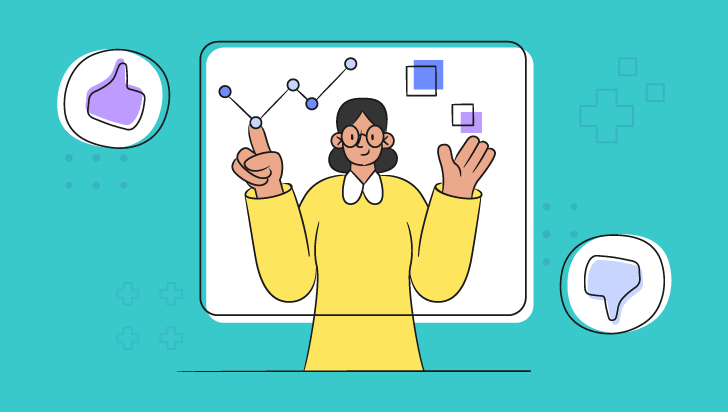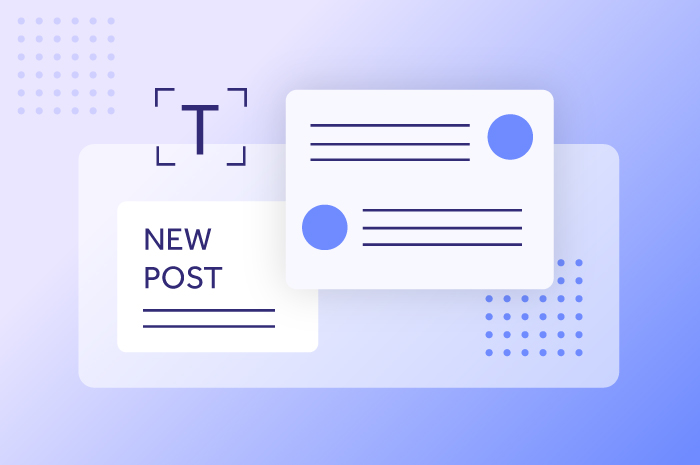



Is AI ushering promise or peril? No matter how you answer that question, it’s clear that ChatGPT has taken the world by storm.
The widespread availability of generative AI brought forth a whirlwind of speculation about the implications of using AI across various industries. Content marketing was no exception to this dynamic discussion.
Now that AI tools have been increasingly tested in the public domain, many concerns have been diminished, and excitement has been tempered. Conversations shifted from nervous to hopeful about AI’s potential to support content marketers—not replace them. And pie-in-the-sky notions of substituting human professionals completely with content creation programs on autopilot have mostly fallen flat.
That all begs the question: How should content marketers use AI to support their projects?
At Spot On, we recognize its usefulness and limitations for health tech marketing, and we’re committed to using these tools responsibly to optimize efficiency and enhance the creative process for our clients. We’re exploring important questions like: What types of AI are best used in content marketing? Where are its limits? And how can it provide valuable assistance in our mission to expand effectiveness in an ever-evolving digital landscape?
So, let’s delve deeper into AI’s applications for digital marketing, starting with some essential background information.
Simply put, AI encompasses technologies designed to perform actions typically associated with human intelligence. They largely function on machine learning—intaking vast quantities of data, analyzing this information, and making informed predictions and determinations.
Some more advanced AI technologies leverage deep learning, a more robust underpinning to AI that uses simulated neural networks that emulate the human brain to comprehend complex variations of learned information.
One of the most common uses of AI is through voice recognition. If you’ve uttered the phrase, “Hey, Siri,” then voila! You’ve used AI. Below the surface, this technology uses deep learning to determine what you’re asking it.
Numerous variations of AI help with different tasks. Out of all the fundamental AI types driving innovation, one stands out as the principal technology used in content marketing solutions: conversational AI.
Made possible by natural language processing (NLP)—a subsection of AI focused on understanding human language—this technology uses large language models (LLMs) to power programs that can interpret how people communicate and surface coherent responses to user inputs.
Conversational AI systems largely fall into two buckets:
Most marketers have experimented with or actively leveraged AI programs. Nearly nine out of 10 content marketers have used AI to complete various tasks, and almost half of them use it frequently.
Some specific applications of AI that marketers use include:
Perhaps one of the most common uses of AI in content marketing is drafting initial content ideas. This can include asking programs to draft high-level explanations of relevant topics and even creating initial copy to help get the juices flowing.
One example of an AI tool that supports this aspect of content marketing is SEO.ai. This program uses custom algorithms to give marketing professionals quick readings on competitive whitespaces in Google, copy suggestions based on that research, and insights into how resulting content stacks up against competitors.
When you hear “content marketing,” you probably think of blogs, whitepapers, and eBooks. But newsletters and social media ads are invaluable for distributing content and engaging high-intent buyers. If you’ve ever written a few of these email campaigns or advertisements, you know how difficult it can be to come up with unique and engaging copy time and time again.
That’s where certain AI tools can help tremendously. Solutions like Writesonic draw on large amounts of data about best practices for yielding the best click-through rates, opens, and other important metrics to automatically generate unique email and ad copy that drive improved results.
Video and audio are efficient ways to capture your brand voice and showcase product results. Beyond standalone media, transcribing these clips can help content marketers unpack important insights and amplify them to target audiences.
However, transcribing can be extremely tedious. That’s why programs like Content at Scale use AI to transcribe everything from video interviews to podcast episodes automatically. Beyond transcription, this software even drafts initial copy ideas to streamline the content creation process.
There’s no doubt AI is helping content marketers streamline their workflows. But there are also several drawbacks to AI that are worth significant consideration.
You ask ChatGPT to write a blog and cite its sources. The result looks confident and well-researched, with supportive stats to boot. But once you click on its references, you realize the facts and figures that sounded so convincing are completely false.
This phenomenon is known as “hallucination,” and it’s a common occurrence when marketing professionals lean on generative AI tools to do the writing. The evidence is in: Every current generative AI system has the potential to hallucinate.
That’s why it’s up to content marketing professionals to be extremely careful with verifying any information surfaced by generative AI interfaces. Responsibly using tools like ChatGPT entails meticulously combing through the details, ensuring nothing is plagiarized and misinformation doesn’t make it into the final draft.
One study found scientific abstracts completely created by OpenAI’s technology can fool most advanced readers. Though content produced by ChatGPT is already passing basic writing standards, it struggles to excel with complex topics.
It takes more than just convincing your target audience you’re human to win them over. You have to develop and distribute thoughtful, high-quality content that helps your audiences with very specific healthcare tech concerns. Ultimately, ChatGPT and other AI-powered programs can only approach subjects at a surface level—no matter how many follow-up inquiries you feed them.
Plus, Google is constantly updating its algorithm to prioritize better content. Just look to its June 2023 update that caused an internet uproar as brands that over-indexed on AI-produced content and cheap backlinks saw their traffic and rankings drop.
You can research topics on Google or by using an advanced SEO tool. However, content marketers can use other ways to conceptualize relevant topics to write about. For instance, they often team up with salespeople to understand what pain points potential customers are expressing in meetings.
If you can preempt challenges and issues that Google doesn’t detect or just barely scratches, you can maintain a strategic advantage over other healthcare tech competitors. Google will never get ahead of the consumer, and neither will you. But meeting them upstream and plotting out your content to speak to their concerns can give you a leg up to win them over.
The reality is that almost all of that is done through human interaction. And unless AI starts having coffee dates with brands’ ideal customers, it won’t be able to iterate on those findings.
Whatever the scenario, you’ll still need skilled and experienced content marketing experts to:
You read that right. Can ChatGPT produce a generally cohesive, grammatically correct piece for you that meets a preferred word count? Sure. But does that mean it’s high-quality? That’s debatable. That’s why you still need an experienced content marketing agency like Spot On to actually write your content that’s tailor-made for the very specific needs of your healthcare software audience.
Writing content is only one step in implementing powerful inbound marketing initiatives. Effective content marketing pursuits need sound strategies behind them to help brands expand visibility, contribute to meaningful industry conversations, and increase demand for services or products.
Sure, you can use AI to inform on-page SEO recommendations. But what happens next? You’ll need an expert to go in, prioritize what needs to get implemented first, and actually perform those edits. Additionally, experienced professionals in this field can customize optimizations more effectively to the exact priorities of your healthcare SaaS buyers.
Content marketing still needs a human touch. No matter your company’s goals, you can’t rely on AI alone to generate visibility and reinforce your organization’s reputation. Spot On boasts a deep bench of healthcare tech content marketing experts who marry the latest technology with real-world experience to bring your brand to a new level. Speak with an expert today to discover how Spot On can button up your content marketing strategy.



Spot On co-founder and partner Susie Kelley is dedicated to leveraging technology to advance innovative solutions in highly regulated industries. Driven by the opportunity to elevate brands, she co-founded Spot On in 2012 after having spent 15 years honing her marketing skills in an agency. Susie leads business development with a personal touch, focusing on building lasting relationships with clients to meet — and exceed — their goals for business growth.
Get the latest and greatest posts sent straight to your inbox.


